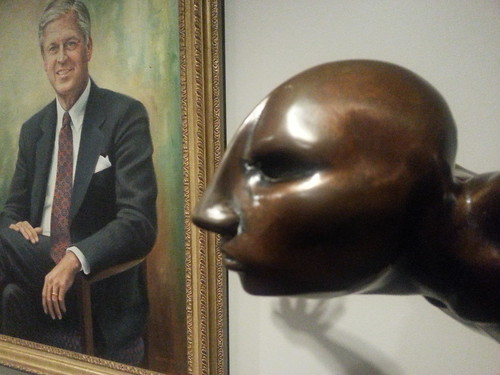Penn students left ‘panicked and puzzled’ by competitive Wharton club application process
Wharton #Wharton


Students voiced their concerns regarding the Wharton club application process, specifically on the competitiveness and the necessity to have connections.
Credit: Derek Wong
The semesterly process of applying to Wharton clubs is stressful, competitive, and often unfair, multiple students told The Daily Pennsylvanian — despite recent efforts to regulate the application process.
Students have previously voiced frustration to the DP about clubs with single-digit acceptance rates and multi-stage application processes, particularly when looking to meet new people and learn more about chosen interests. Written applications typically precede one to two rounds of evaluative interviews before clubs notify applicants of their decisions, according to students.
The written portion of the standardized spring club application process for Wharton pre-professional clubs closed on Feb. 2.
The Wharton Council, which regulates Wharton club recruitment, has made efforts to make the application process more equitable over the past several years. Regulations implemented include a standardized application, uniform decision notification dates, and restrictions on conducting group interviews.
Wharton senior Erin Feng — the Co-President of Global Research Consulting — told the DP that the club receives in excess of 100 to 200 applications each cycle. The club currently has 70 active members, according to its website. She said that their team reviews applications on an objective scoring system based on both behavioral and technical elements.
Wharton senior and GRC co-president Shana Ahemode additionally told the DP that the club hosts wellness events and workshops to help applicants prepare for the technical portion of the interview process.
However, students say some clubs have implemented processes that circumvent these initiatives by turning to personal connections.
“It’s very reliant on who you know,” Huntsman Program first-year Shubham Dixit — who applied for clubs this application cycle — said. He felt that optional coffee chats were an additional evaluative round in the recruitment process.
Dixit added that clubs that encouraged students without previous experience to apply seemed to evaluate technical abilities through all parts of their recruitment processes.
“It honestly just left me really panicked and puzzled,” Dixit said.
Others described the process as random, stating that club applications have become a game of volume rather than a way to pursue true interest.
Wharton first-year Sakyo Maeda — who also applied to various consulting clubs this application season — explained that the low chances of receiving membership to certain clubs encourages a “shooter method” where students apply to as many clubs as possible in hopes of receiving admission to at least a few.
Maeda told the DP that an essay he reused from the previous application cycle got him an interview with a club that he was rejected from when he used it before.
“It’s a process we have to go through, but you might as well shoot your shot,” Maeda said. “You just throw all your efforts out there and wish for the best because you don’t know which clubs you’ll hear back from.”
Wharton senior and Wharton Council co-chair Ashley Song told the DP that making club recruitment fair and low-stress is a collaborative effort.
Sign up for our newsletter
Get our newsletter, DP Daybreak, delivered to your inbox every weekday morning.
“We can enforce a lot of policies, but at the end of the day we share the work with students in making sure that it’s not an overwhelming part of student life,” Song said.
Song encouraged club leaders to be mindful in ensuring they are not causing undue burdens on their applicants.
Maeda, however, told the DP that he believes more can be done. He suggested implementing a limit on the number of clubs students can apply to, stating this could encourage students to only apply to clubs they are truly interested in.